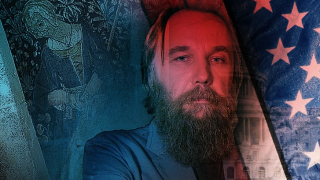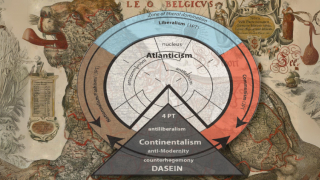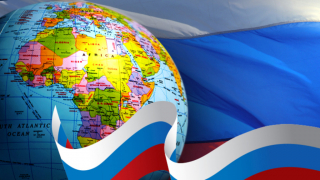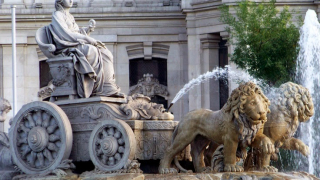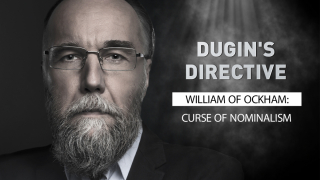The political will of human beings
Since the means of production were developed enough as to generate surplus and exclude people from this surplus, and since the moment in which humanity started to leave its tribal phase as hunter-gatherers, certain individuals and groups tried to appropriate surplus, and to exploit the work of others.
We humans organize ourselves to manage scarce resources, and due to the scarcity of these resources, we must compete to obtain all the resources we can.
The competitive nature of human beings means that we have an order in which those who are most apt for this competition have privileges over others.
As mentioned by Marx, the set of institutions that make up the State was used to exert the organized repression imparted by the dominant group over the rest of society, preserving certain
production relations within the framework of the exploitation of man by man.
The political forms adopted by the State are not the same throughout history, being compatible with an appreciable development of democracy, a development that has manifested itself in the political forms of the capitalist State, affirming civic and political rights.
In the case of political rights, these in the first instance were solely granted for the bourgeois and the male landowners, and in a second instance extended to the other male sectors of society, until finally, in a third instance, they spread towards women.
Power is the ability to set limits in the freedom of action of social agents, making them act in a way that otherwise they would not. Political power can be defined as that power which is exercised directly or indirectly, thanks to the possession of what Max Weber called as the monopoly of legitimized violence in a given territory, in such a way that it can only be exercised by the State, or by private agents which firstly must be authorized by the State. Political power does not necessarily have to be exercised directly by the political authorities, there are different groups that are capable of indirectly exercising political power. This is done by persuading or dissuading those who do exercise political power directly, and within these groups of persuasion and deterrence we find companies, the public opinion, trade unions, human rights organizations, elites, religious groups, etc.
We can speak of two different kinds of political power: direct political power, which is exercised directly, either by public authorities or by citizens at the time of voting, and indirect political power, which arises in the capacity of persuasion and deterrence that certain groups and individuals have to influence the designation of those who will carry the direct political power, or in the political decisions which the former will take.
Direct political power only arises from the political decisions made by public officials or those taken by citizens when voting, but indirect political power is the power that moves the direct political power from the shadows, since another way in which social agents can enter politics is simply persuading and dissuading public officials or voters.
By this definition, even the media is a tool of indirect political power, since it serves to persuade and dissuade agents who do carry direct political power.
But even this does not capture the complexity of the political landscape, it should be considered that also indirect political power can be divided into two kinds: the active and the passive. Indirect political power which is also active arises from an action impacting or being received towards those who carry direct political power, which manages to persuade or dissuade them to do or not to do certain political actions.
The indirect political power that in turn is passive, arises from a persuasion of those who carry direct political power without any action being taken by the sectors that persuaded them.
This indirect and passive political power occurs when those who carry direct political power anticipate in advance the reactions that the rest (public opinion and certain influence groups) will have, then model their actions according to what they anticipated. Indirect passive political power also occurs when those who carry direct political power shape their actions according to the wishes of those who follow their decisions; only because the first ones consider that the satisfaction of those desires is morally good, and therefore they are convinced of a certain moral political agenda that they have set out to fulfil.
We can define the State in a simple way: it is the set of institutions that structure the exercise of direct political power, that is, the set of rules of a game designed to structure the way in which direct political power is exercised.
Democracy is a word derived from Greek meaning "power of the People", and throughout history it has been defined in many ways. Democracy has been defined as "a form of organization", "a form of State", "government of the People, by the People, for the People", etc.
For Robert Dahl democracy is merely a theoretical concept, regarding a government which is characterized by answering to the demands of the governed without discrimination.
Adam Przeworski defines democracy as "a system of positive rights and responsibilities", and O'Donnell defines a democratic regime as that where "access to the main governmental positions (with the exception of the judiciary, the armed forces, and autonomous entities), is determined by fair elections ".
But in reality, democracy must be seen as a social process (as stated by John Dewey) with its advances and setbacks, and that it is not merely a theoretical concept, but develops in reality. Democracy is actually a social process, because it is constantly under construction and deconstruction as social agents play, determining through political power the way in which economic and symbolic resources are distributed among the sectors of population.
Anyway, as stated, I think it is very important to classify human will into manifested and authentic will. Manifested will is the will being displayed by the People, taking into account that they do not necessarily have enough information to achieve the complete picture of the consequences that their desires would have.
These can cause negative consequences that would oppose their other will: the authentic will. Authentic will is the true desire of the People, which consists in being free to achieve certain wishes or being free to not suffer what is not desired.
Realizing this will is only possible if People had enough information as to have the complete picture of the consequences
that their actions would truly have. In order to explain this a famous Platonic allegory can be used: that of the cave.
In that one, a group of prisoners is since their birth in a cave and they are subjected in such a way that they can only look towards the wall, without being able to turn their head. Behind them, there is a corridor with a wall where other men carry all kinds of objects, whose shadows are projected by a bonfire. These chained men consider as truth the shadows that they see projected, since they don’t know anything of what happens behind their backs.
Now I will apply this allegory to my analysis of democracy, as to conclude that the manifested will is what men take as truth, even if it is not always true. But these men have a will to be free as to fulfil a certain yearning or not to suffer a harm, and the will that they are capable of manifesting, sometimes ends up entering into contradiction with their authentic will, since people do not always know what it is better for the fulfilment of it.
The manifested will is simply the will expressed by the People, while the authentic will is what they would be willing to favour, that is, their freedom to satisfy themselves, if they have perfect information about the consequences of their desires and hence the true consequences of their influence in politics. It must be considered that the manifested will is only a distortion of the authentic one, which is caused by the limits on the information that the People is capable of receiving or understanding.
Returning to the issue of democracy, John Stuart Mill stated that an opinion, even if it is invalidated by those who have the power to do so, or by a majority, does not lose what it is true in it.
There are situations where the transition from a situation 1 to a situation 2 is an improvement for all individuals in society, or an improvement for some, without the others being harmed. The problem is that not everyone has to state the same, since individuals are fallible in the sense that they are not omniscient nor omnipotent, and sometimes, a minority may be right as more
"excellence" and knowledge is reflected in those than in the majority.
The problem is to establish an "optimal" where situations and arguments can be selected as preferable to others, and here is when democracy, according to Mill, wanting to make individuals equal, have the risk of limiting the excellence of some Individuals in relation to the majority, and even individual freedom itself, so Mill’s views are similar to that which sees in democracy the danger of tyranny of the majority.
Anyway, the ideal of freedom is the objective that we must pursue, and with respect to the increase of the freedom of individuals, understanding that individuals have understandable limitations, a man can not be infallible, insofar as he is not a complete master of his body, his emotions, his desires and mind, in short, everything related to him.
Sometimes what men take as truth is not such, since they are standing a reality that is not known by them and sometimes is even unknowable no matter what they do.
Human knowledge, being subjected to limitations, opens the door to different paths, different visions of reality, which do not necessarily have to be harmonious.
Sometimes they can enter into conflict, and in addition to this, as time passes, the views of men can change since they are subject to a context that is modifiable.
Mill is sceptical with some points related to democracy, for the very same issue of the fallibility of man, and accordingly he identified situations throughout history where this fallibility overlap with the desire to curtail individual freedoms.
Like Mill, I also consider that particular cases should be treated without bias, since truth does not disappear because the individual is swallowed by the majority, neither disappear because they want to silence it, and it can be considered that in this view freedom is also a means for protecting truth.
Perhaps we could even make a comparison between what is held as truth in Mill's thought, and its opposite in the famous Orwell’s novel 1984, where in that dystopian vision truth is only what a bureaucratic apparatus determines, in conjunction with a homogenized and ragged majority, regardless how absurd and puerile is the argument’s structure which must be believed.
The considerations regarding what is truth are faced with the limitations of the subjective, of those angles of reality that the subject can perceive, but behind this subjectivity is the truth behind a veil.
Democracy is in reality the social process that develops as the State's action is more akin to the authentic will and not to the manifested will: that is the essence of democracy.
The State acts in part according to People’s direct political power when voting, together with the indirect and active political power of the People, who carry out actions to persuade or dissuade the rulers and the voters.
Finally, also thanks to the indirect and passive political power, which occurs when those who possess direct political power shape their actions according to how they predict what the rest will do, or when those who carry that direct political power shape their actions according to the People’s true wishes, due to the fact that they are convinced of a certain moral agenda whose fulfilment depends on the satisfaction of those desires. In this way, democracy is a social process that emerges from the power of the People, the State being a conduit of that power.
A demagogic system is not the form of State to which we should aspire, since, as stated, it is based on the capacity of the State to respond to demands that stem from the manifested popular will of the People, but not the authentic one, and as I mentioned, this manifested will is nothing more than a mere distortion of authentic will, due to the limits in information that the People have at their disposal.
Therefore, instead of a form of State based on demagoguery, which is what liberal universalism want to impose, a form of State based on what I call normativism is desirable, and which consists in a way of government where the State through its norms aspires to satisfy the authentic will of the People, instead of the manifested one, and therefore aspires to be truly democratic.
Like democracy, normativism is a social process, which develops as the State satisfies the authentic will, and therefore it must aspire to a society functioning as an organic body where their different parts do not collide with each other bringing conflicts and inefficiency.
It is also possible to define normativism and democracy as social processes that develop according to the State's ability to make its individuals more free, or more precisely, according to their capacity to promote the sustainable human development of a society, being this individual freedom something which depends on the People as a whole.
Normativism and democracy can be defined in that way since ultimately the desires of every individual consist either being free to do something that is desired, or being free to avoid suffering that which is not wanted, and according to the performance in which a State is able to better satisfy the authentic yearnings of the People as a whole, more democratic will be that State. Democracy should not be seen as a form of government characterized by the fact that the State acts only according to what it hears from voices in the tribune, therefore it is a form of State where there is less room for demagoguery.
Hence, demagoguery should be defined as a social process by which political groups direct the People by appealing to the manifested will.



